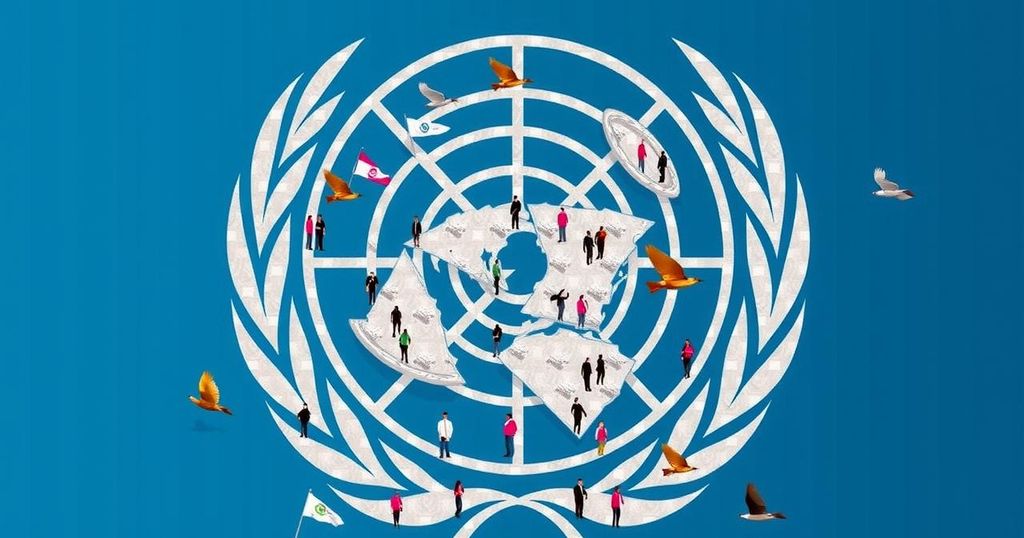The UN’s humanitarian chief, Tom Fletcher, has warned of critical funding shortages, with only 43% of this year’s $50 billion appeal met. He indicated that the agency aims to support 190 million people in need next year, necessitating $47.4 billion. Escalating conflicts and climate-related disasters exacerbate the situation, demanding urgent global solidarity. The humanitarian system is underfunded, overstressed, and facing unprecedented challenges.
The United Nations Office for the Coordination of Humanitarian Affairs (OCHA) has raised an urgent alarm regarding the global humanitarian crisis, necessitating tough funding choices in the face of decreasing financial support. Tom Fletcher, the new humanitarian chief, expressed severe concern over the unfulfilled appeal of over $50 billion for this year, indicating that only 43 percent of this amount had been met by last month. The agency aims to provide assistance to 190 million individuals in severe need across 32 countries, with an estimated funding requirement of $47.4 billion for the upcoming year.
Fletcher poignantly remarked that “the world is on fire,” highlighting the simultaneous challenges posed by escalating conflicts in regions like Gaza, Sudan, and Ukraine, compounded by the effects of climate change. He insisted on a stringent prioritization policy to direct resources to the most vulnerable populations, particularly those facing conflict-induced displacement and starvation.
This appeal is the fourth largest in OCHA history, yet it leaves out an alarming 115 million individuals whose humanitarian needs may not be met. The agency experiences significant funding challenges, with last year’s contributions from the United States totaling over $10 billion. Concerns are mounting over potential cuts in humanitarian funding under the new U.S. administration, threats which could further complicate the humanitarian landscape. Fletcher asserted the necessity for increased global solidarity amidst this crisis, stressing that the humanitarian system is currently overstretched, underfunded, and under attack. Tragically, this year has witnessed the highest number of humanitarian worker fatalities on record, with 281 workers killed in conflict zones.
In recent years, global crises, such as armed conflicts and climate change, have escalated humanitarian needs significantly. The United Nations, through its Office for the Coordination of Humanitarian Affairs (OCHA), coordinates international efforts to respond to these crises by securing funding and delivering aid. However, a trend of donor fatigue has emerged, resulting in unmet funding appeals and a growing gap between needs and available resources. Many vulnerable populations are further compromised by the global political landscape, placing immense pressure on humanitarian advocates and organizations. Tom Fletcher, as the newly appointed head of OCHA, has emphasized the need for immediate action to address these issues. The substantial funding shortfalls in areas like food assistance and additional services have resulted in severe consequences for afflicted regions, leading to dire living conditions for millions globally.
The appeal by OCHA calls for urgent financial commitment to address escalating humanitarian needs worldwide. With over half of the previous year’s funding request unmet, this situation requires immediate attention and support from international donors to assist 190 million people affected by conflict and starvation. The humanitarian landscape remains precarious, with calls for solidarity and commitment from global leaders to address the severe challenges presented by the combination of ongoing crises and climate change. The loss of humanitarian workers underscores the dire circumstances under which aid is being provided.
Original Source: www.aljazeera.com






